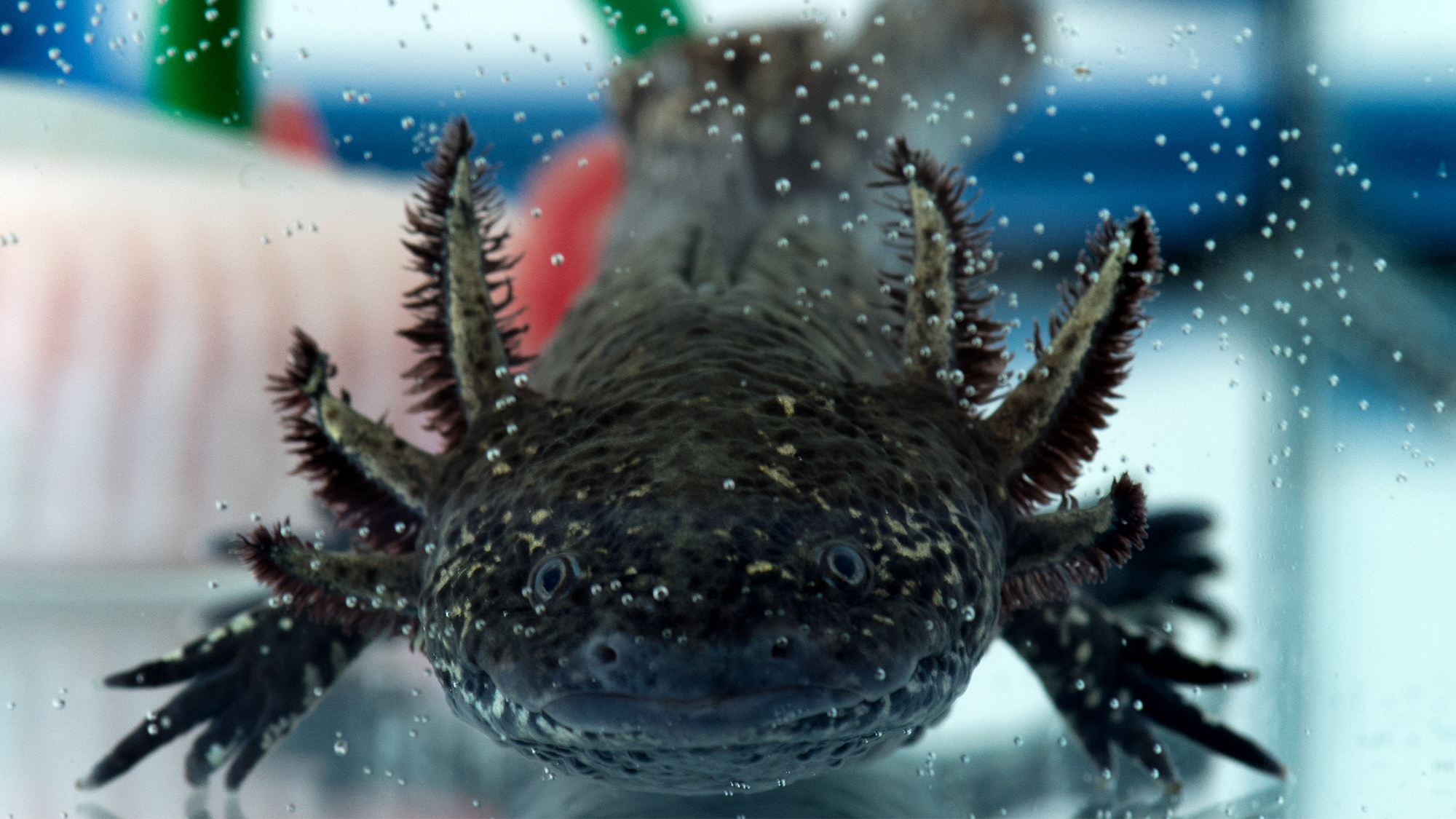
Axolotl mucus peptides attack breast cancer cells and MRSA
Laura Baisas
created: June 17, 2025, 5 p.m. | updated: June 27, 2025, 5 p.m.
The antimicrobial peptides (AMP) in the axolotls’ mucus membranes protect them from pathogens.
Its antimicrobial peptides were effective against multi-resistant bacteria, including the dreaded methicillin-resistant Staphylococcus aureus (MRSA), and helped combat cancer cells.
The chemical structure and mechanism of action of the antimicrobial peptides are what make them so difficult to produce.
In a cell culture, these peptides triggered a programmed cell death in breast cancer cells.
“We observed that the peptides specifically kill cancer cells without attacking healthy breast tissue cells,” Strauß said in a statement.
5 months ago: Popular Science